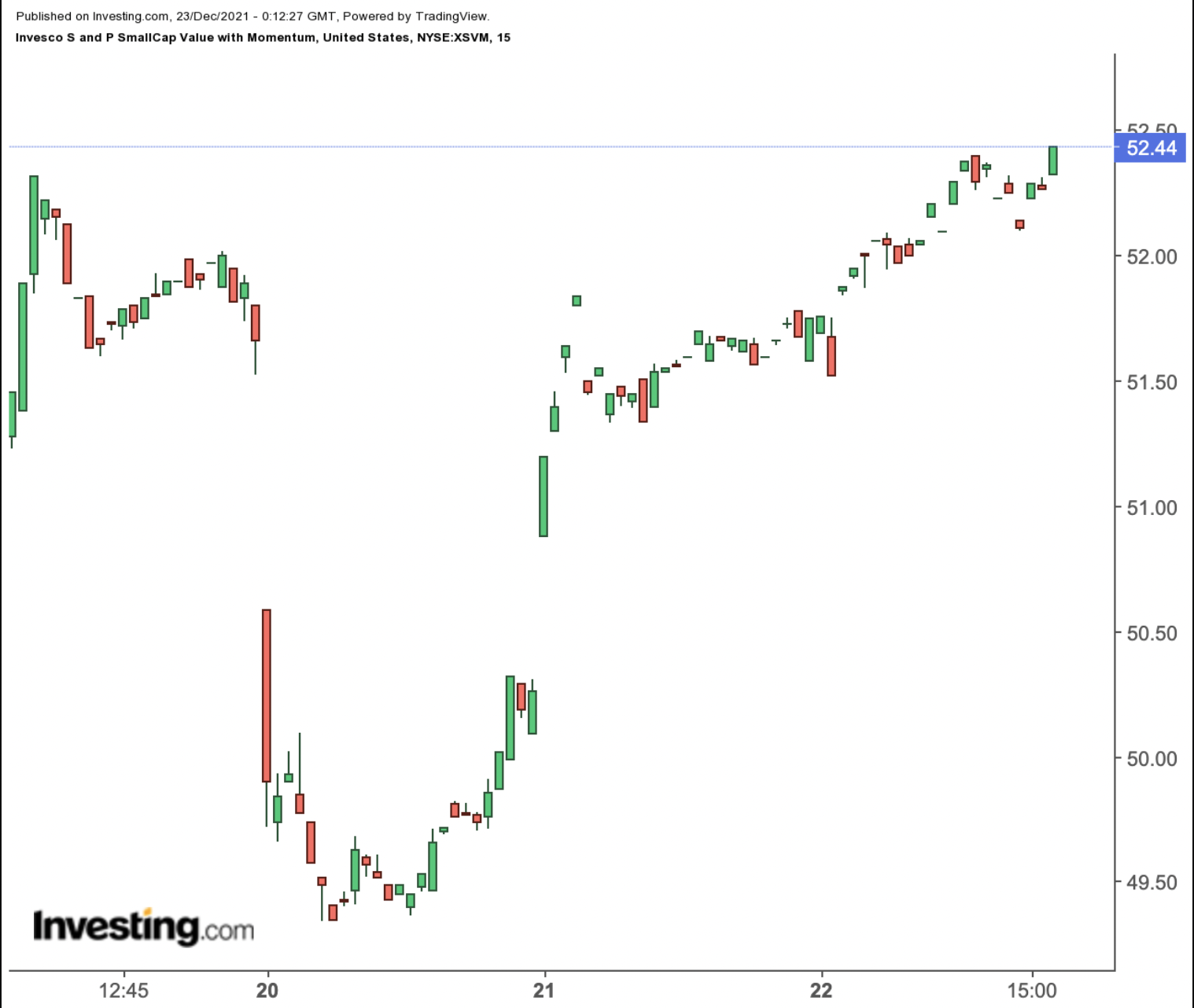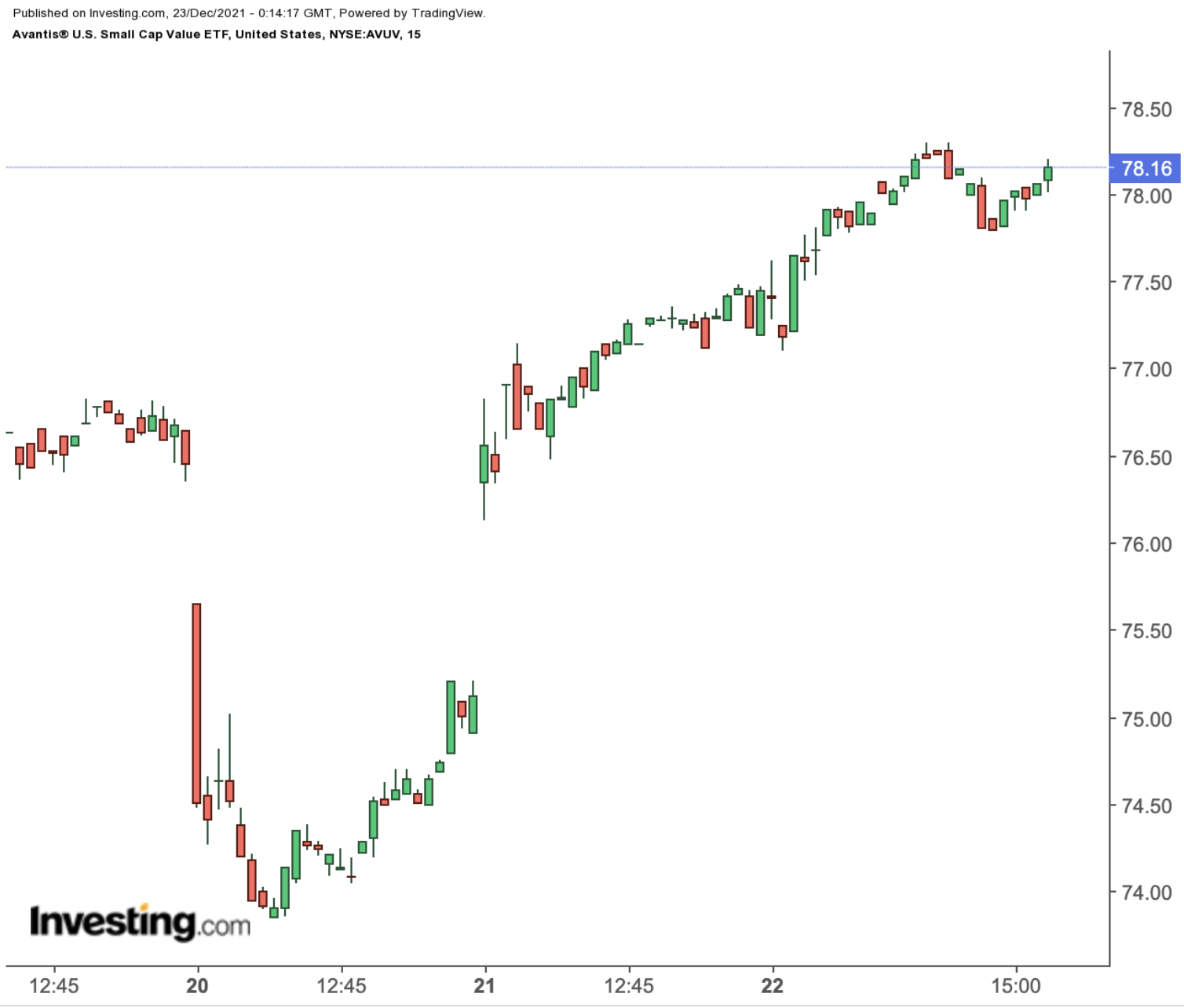As we get ready to end a volatile month on stock markets, many investors are looking for ways to diversify their portfolios.
Numerous academic studies highlight that in the long-run, small caps tend to outperform large-cap stocks, as smaller companies typically have more potential to grow than larger ones. The phenomenon is referred to as “the small-cap premium.” But, understandably, generalizations do not hold true every year.
For instance, small companies have fewer resources compared with larger, more established firms. As a result, they tend to be riskier and their share prices are usually more volatile. Also, most small caps do not provide dividends and thus are not necessarily appropriate for passive-income seekers.
Different brokers might have different definitions of small-cap shares. In the US, a small-cap business typically has a market cap that ranges from $150 million to $2 billion. However, we should note that many ETFs that are called “small cap” might include mid-cap companies as well.
The Russell 2000 index is regarded as an important gauge of the performance of small caps. So far this year, it is up more than 11.5%. Thus, the iShares Russell 2000 ETF (NYSE:IWM), which tracks the returns of the Russell 2000 index, has returned 11.3%. Meanwhile, the Vanguard Small-Cap Growth Index Fund ETF Shares (NYSE:VBK), which tracks the CRSP US Small Cap Growth index, is up 3.5%.
By comparison, the S&P 500, which represents the largest US names, has returned 23.8%. Put another way, it is important to look under the hood and do due diligence on numerous ETFs that have a small-cap focus, before hitting the "buy" button.
Most small-cap stocks are domestically-centric in nature, as a large portion of their revenues come from their home countries. Therefore, for US small caps, the strength of the US economy in 2022 is likely to affect how they will perform next year.
Recent metrics from Morgan Stanley suggest:
“A strong capex cycle, increased inventory-building and deferred demand, should drive US GDP growth of 4.6% for 2022… [D]eveloped market central banks likely won't take drastic measures to dampen growth.”
It is too soon to know when the Federal Reserve might tighten its monetary policy and what the potential effects of such a move on the US economy might be. But investing in a diversified range of shares that include small caps could be appropriate for most long-term portfolios.
So, today we introduce two exchange-traded funds (ETFs) focusing on small-capitalization stocks that could be long-term holdings.
1. Invesco S&P SmallCap Value with Momentum ETF
- Current Price: $52.44
- 52-Week Range: $33.79 - $57.17
- Dividend Yield: 0.98%
- Expense Ratio: 0.39%
The Invesco S&P SmallCap Value with Momentum (NYSE:XSVM) invests in about 120 companies from the S&P SmallCap 600® Index. These securities have the highest "value scores,” based on earnings-to-price, book-value-to-price and sales-to-price, as well as "momentum scores,” based mainly on the past year’s returns. The fund began trading in March 2005.

XSVM, which currently has 121 holdings, tracks the returns of the S&P 600 High Momentum Value Index. Both the index and the fund are rebalanced and reconstituted twice a year.
The top 10 names make up about 16% of net assets of $486.7 million. In terms of sectors, we see financials (36.80%), followed by consumer discretionaries (16.44%), industrials (13.87%) and materials (9.66%).
Leading holdings in the roster include Veritiv (NYSE:VRTV), which provides packaging and printing services; distributor of grocery products United Natural Foods (NYSE:UNFI); Group 1 Automotive (NYSE:GPI), which operates auto dealerships and offers vehicle repair services as well as insurance; Atlas Air Worldwide Holdings (NASDAQ:AAWW), which offers outsourced aircraft and cargo services; and agriculture commodity trader Andersons (NASDAQ:ANDE).
The fund returned 48.2% in 2021 and hit a record high in early November. Since then, shares in the fund have come under pressure and lost more than 10%. Forward P/E and P/B ratios stand at 10.08x and 1.41x, respectively.
Although it might be difficult to replicate these kinds of exceptional returns in 2022 as well, we like the diversity of XSVM and believe it deserves your attention. A further decline below $50 would improve the margin of safety.
2. Avantis US Small Cap Value ETF
- Current Price: $78.16
- 52-Week Range: $55.37 - $84.59
- Dividend Yield: 1.32%
- Expense Ratio: 0.25%
The Avantis® US Small Cap Value ETF (NYSE:AVUV) invests in US small-cap companies trading at low valuations and with higher profitability ratios. The fund started trading in September 2019.

AVUV, which has 682 holdings, is actively managed. Its benchmark index is the Russell 2000 Value index.
In terms of sectors, financials have the largest slice, with 29.0%. Next in line are industrials (17.0%), consumer discretionaries (17.00%), energy (15.0%) and materials (7.0%). The leading 10 names make up about 7% of net assets of $2.17 billion.
Louisiana-Pacific (NYSE:LPX), which manufactures building products; oil and gas exploration and production names PDC Energy (NASDAQ:PDCE), Matador Resources (NYSE:MTDR) and SM Energy (NYSE:SM); and transportation group Saia (NASDAQ:SAIA), which provides less-than-truckload (LTL) services, are among the top names in the fund.
In the past 52 weeks, the fund is up 36.3% and, like XSVM, saw an all-time high in early November. But since then, AVUV has lost about 8% of its value. Interested readers could regard $75 or even below as a better entry point.
